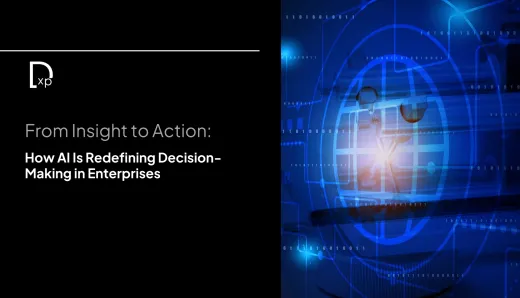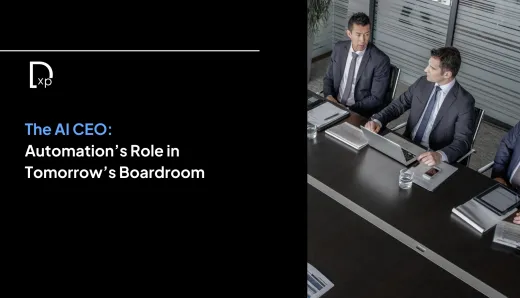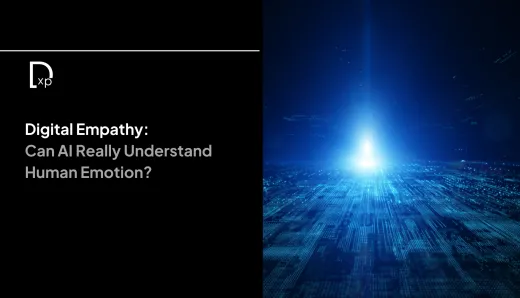What’s Next? Predictions on the Future of AI and Its Impact on Industry

The future isn’t waiting for permission—it’s already in motion. Artificial intelligence, once relegated to the innovation lab or the tech-savvy fringe, has become the engine behind global industry transformation. And yet, even with all the disruption we’ve seen so far, we’re only at the beginning. The real wave is still building. The question isn't if AI will reshape industries. The question is how—and how fast.
In looking ahead, the most important thing to understand is that AI isn’t a single trend. It’s a convergence of technologies, philosophies, and capabilities that will redefine everything from what products we sell to how we work, compete, and innovate. So let’s ask the big question: What’s next for AI—and what does it mean for the industries that depend on it? The answers aren’t all comfortable, but they are critical. Because navigating the future of AI requires more than technical adoption—it demands strategic reinvention.
Prediction #1: AI Will Blur the Line Between Digital and Physical Industries
For decades, industries have been divided into “digital” and “physical.” Retail vs. e-commerce. Manufacturing vs. software. Healthcare vs. healthtech. That binary is dissolving. AI is the connective tissue, the bridge that merges atoms and algorithms. In manufacturing, predictive maintenance and generative design are reshaping how machines are built and managed. In agriculture, autonomous drones and AI-powered soil analytics are optimizing yields with surgical precision.
In the future of AI, even the most analog industries will be data-driven ecosystems. Smart factories. Self-healing infrastructure. Energy grids that learn and adapt in real time. Businesses must stop thinking of AI as an overlay and start treating it as the operating system.
Prediction #2: Industry Competition Will Shift from Scale to Intelligence
Historically, industries rewarded those with size, supply chains, or market reach. But AI is flipping that. In the next decade, competitive advantage will belong to companies that learn the fastest—not just the biggest. Intelligence will become the new scale.
The winners will be organizations that harness AI to rapidly sense change, simulate outcomes, and respond with agility. That means every decision—from pricing to product development—will be shaped by predictive analytics and real-time insight. Strategy will no longer be static. It will be living, learning, and continuously evolving.
This shift requires rethinking how industries structure their teams, systems, and metrics. It’s not just about hiring data scientists. It’s about embedding intelligence into the culture.
Prediction #3: Regulation Will Shape Innovation (and Not the Other Way Around)
Until now, the AI playbook was simple: build fast, scale faster, ask permission later. That’s ending. Governments around the world are racing to catch up with AI’s speed—introducing laws that shape everything from algorithmic fairness to data privacy, explainability, and environmental impact.
In industries like finance, healthcare, and defense, regulation will become a core part of AI architecture. Companies will need to design systems that don’t just work—they must be accountable, traceable, and compliant. The EU AI Act, for example, classifies AI systems by risk, imposing strict obligations on those that affect fundamental rights or safety.
In the future of AI, regulatory fluency will be just as important as technical expertise. The best companies won’t resist oversight—they’ll embrace it as a framework for trust and long-term success.
Prediction #4: AI Will Redefine Human Work—Not Replace It
The fear that AI will eliminate jobs is understandable—but too simplistic. What’s far more likely is a reshaping of roles, responsibilities, and required skills. Repetitive, rules-based work will be automated. But creative, strategic, and relational work will become more valuable.
AI will act as a force multiplier, not a replacement. In healthcare, clinicians will use AI to diagnose faster, freeing them to focus on care. In law, AI will draft contracts while lawyers focus on negotiation. In marketing, AI will generate content while teams double down on storytelling and emotional resonance.
Industries must prepare for this shift with retraining, re-skilling, and a radical rethinking of the employee experience. The question is no longer “Will AI take jobs?” It’s “Are we preparing people to thrive in the new human-AI partnership?”
Prediction #5: Sector-Specific AI Will Dominate the Next Wave
The next era of AI won’t be led by general-purpose models alone. It will be driven by sector-specific intelligence. AI for logistics. AI for oncology. AI for compliance. Industry-tuned models will outperform generic ones because they understand context, jargon, workflows, and edge cases.
We’re already seeing this with startups and enterprises building vertical AI platforms tailored for industries like energy, construction, insurance, and education. These systems will deliver faster time-to-value and tighter alignment with real-world needs.
In the future, industry expertise + AI fluency = outsized opportunity. Businesses that cultivate both will be positioned to lead the next chapter.
Prediction #6: Trust Will Be the Real Currency of AI
No matter how advanced the tech becomes, trust will be the gatekeeper. Can your AI be explained? Audited? Held accountable? Can customers see how their data is used—and benefit from it? Can employees understand how decisions are being made? In an era of deepfakes, data breaches, and black-box models, transparency isn’t optional—it’s everything.
Industries that prioritize responsible AI development—rooted in fairness, privacy, and ethical design—will outperform those that treat trust as an afterthought. Because in a crowded market, trust becomes the brand. And in the age of intelligent machines, trust is the difference between adoption and abandonment.
The Road Ahead: Intelligence With Intention
The future of AI isn’t just about better algorithms—it’s about better choices. Every industry will face a fork in the road: adopt AI tactically or strategically. Use AI to cut costs or to create value. Embrace AI as a tool or as a transformation.
The organizations that thrive won’t be the fastest to deploy—they’ll be the most deliberate. They’ll treat AI as a journey, not a feature. They’ll combine speed with stewardship, capability with conscience.
Because ultimately, AI isn’t shaping the future on its own. We are.




